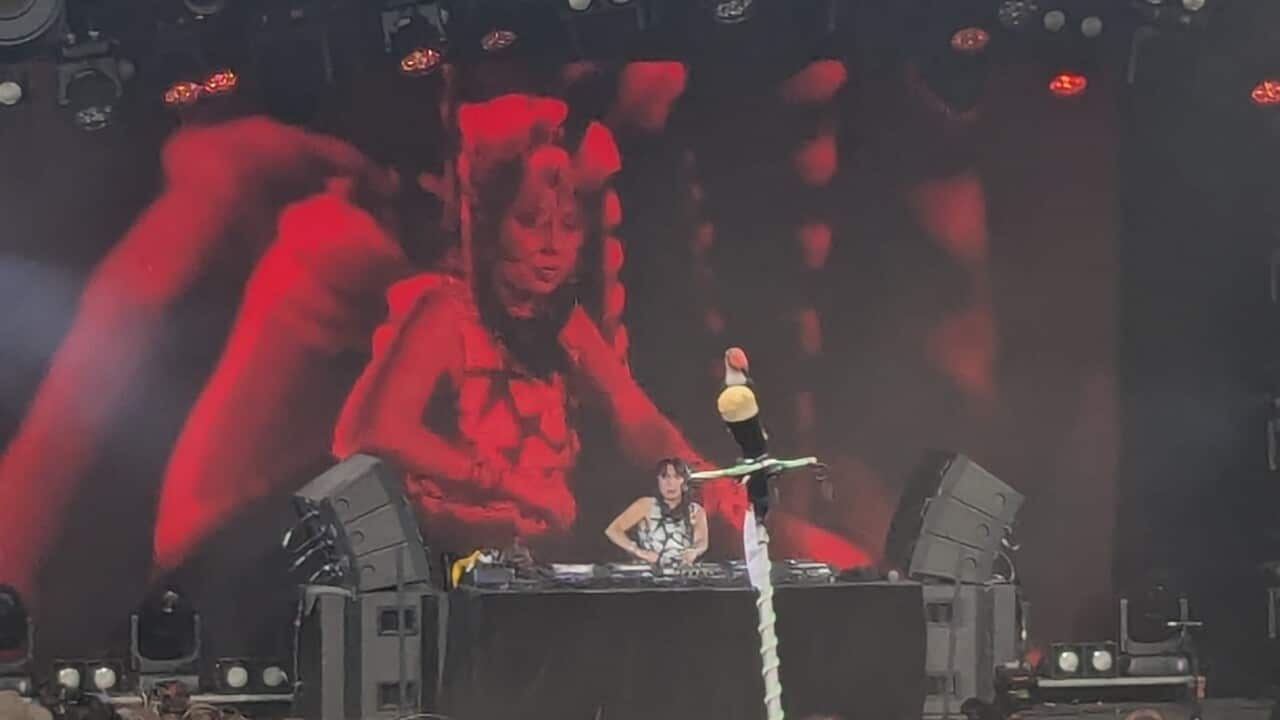Maria Strintzos spent her childhood in Melbourne’s then-migrant suburbs of South Melbourne and Port Melbourne. Her father had arrived in Australia from the northern Greek village of Kaloneri Kozani in 1953, and her mother soon after.
"She came in 1956 as a proxy bride and she married my father,” Maria tells SBS Greek. After spending three years in a girls’ High School where Maria was “taught how to cook and to clean so as to become good mothers and housewives", she finished her secondary schooling at Macrobertson Girls School before she went to study at Melbourne University.
After spending three years in a girls’ High School where Maria was “taught how to cook and to clean so as to become good mothers and housewives", she finished her secondary schooling at Macrobertson Girls School before she went to study at Melbourne University.

Greek Australian volunteer Maria Strintzos. Source: Supplied
She spent ten years researching social discrimination, ethnic origins and racism while working in an organisation assisting homeless people and women in medical need. Life and a desire to help others took Maria to Indonesia in the ‘80s, where she worked at the country’s first women’s rights group.
Life and a desire to help others took Maria to Indonesia in the ‘80s, where she worked at the country’s first women’s rights group.

Greek Australian volunteer Maria Strintzos. Source: Supplied
Based on the island of Java from 1988 to 1990, in the midst of President Suharto’s reign, her job was to fill requests for finance and humanitarian aid from foreign governments. She was appalled by young women’s working conditions at the time. "The girls at the factories were not allowed to leave their work stations, they were just given water and were paid less than 50 cents a day.”
"The girls at the factories were not allowed to leave their work stations, they were just given water and were paid less than 50 cents a day.”

Greek Australian volunteer Maria Strintzos at Hawuzien, Tigray, Ethiopia. Source: Supplied
When she returned to Melbourne, Maria worked for an international humanitarian aid organisation overseeing programs that were running on the Horn of Africa. For half the year she travelled often to the state of Tigray, Ethiopia’s northernmost region, where she finally decided to live. Drought, hunger and catastrophic government policies in Ethiopia brought millions of people to the brink of starvation in 1973-74 and 1983-85, while a total of 700,000 people died.
Drought, hunger and catastrophic government policies in Ethiopia brought millions of people to the brink of starvation in 1973-74 and 1983-85, while a total of 700,000 people died.

Greek Australian volunteer Maria Strintzos. Source: Supplied
Maria had only been 13-years-old, she wanted to help the Vietnamese boat people and orphans.
Later in the 80s, she saw images of malnourished Ethiopian orphans on TV and she even attempted to adopt one.
"Every family there has lost at least one member because of the civil war, hunger or AIDS,” she says. “There are vast areas with no schools, running water or electricity. But people have never complained. Whatever help they get, they are working for it." Maria started a program for the millions of Ethiopia's orphans in 2005. It began with just ten children, for whom she bought books, notebooks, furniture for libraries, food, clothes, and even medical expenses.
Maria started a program for the millions of Ethiopia's orphans in 2005. It began with just ten children, for whom she bought books, notebooks, furniture for libraries, food, clothes, and even medical expenses.

Greek Australian volunteer Maria Strintzos. Source: Supplied
Many of these children later entered universities and colleges, and so far more than 300 children have benefited from Maria’s programs. Maria tells SBS Greek that Greek Australians have contributed to her work as well.
Maria tells SBS Greek that Greek Australians have contributed to her work as well.

Greek Australian volunteer Maria Strintzos. Source: Supplied
Although the Australian government had been involved with significant humanitarian aid in Africa in the past, its focus has shifted to nations in the Pacific Ocean in recent years. When she reached her 50s, Maria decided to take a big step in her own life and adopt one of the orphans in her program.
When she reached her 50s, Maria decided to take a big step in her own life and adopt one of the orphans in her program.

Greek Australian volunteer Maria Strintzos, and her son, Haftu. Source: Supplied
"Haftu was a good student and he respected his grandmother,” Maria says of her adopted son."
Haftu travelled with his grandmother to collect money, clothes and educational supplies from Maria. That trek was around seven kilometres away through rugged mountains." In 2010, when Haftu was 10-years-old, Maria adopted Haftu and shortly after, he arrived in Melbourne.
In 2010, when Haftu was 10-years-old, Maria adopted Haftu and shortly after, he arrived in Melbourne.

Haftu Strintzos. Source: Supplied
Parallel to his schooling, he enrolled in a sports club and became a long-distance runner and athlete.
He has since competed in the Australian Junior Cross Country Championships competition and holds the same records as Australia's greatest marathon runner, Robert Di Castella. Representatives from US universities followed him during his school years, and offered him several scholarships.
Representatives from US universities followed him during his school years, and offered him several scholarships.

Greek Australian volunteer Maria Strintzos. Source: Supplied
Now he is studying to become an engineer at an American university and hopes to participate in the Olympic Games.
Maria explains that his name ‘Haftu’ translates to ‘wealth’.
"Haftu is my wealth, I am so lucky to have this kid in my life," Maria says.
Maria has just inaugurated a library which is built in Haftu's old village school. "It's for the 450 poor village students who attend the school, but have never had the chance to sit at a table and read a book in a library," Maria told SBS Greek.
Press Play on the main photo to listen the podcast (in Greek)






